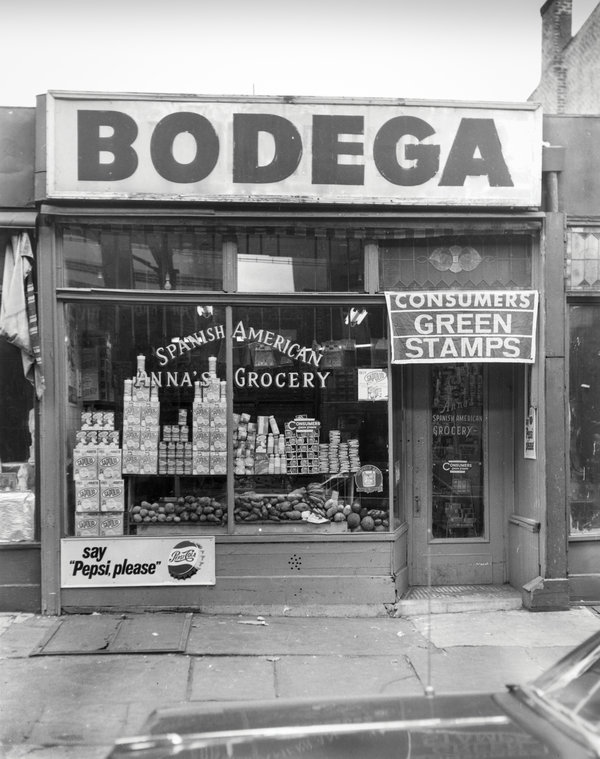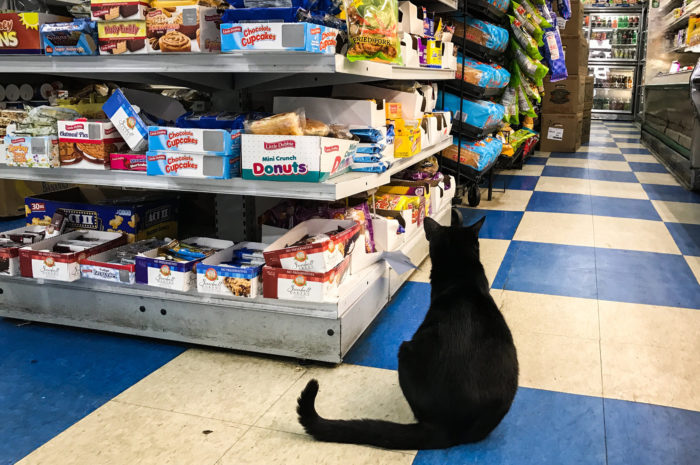By Marvin Agyen
In September of 2017, two ex-Google employees were “roasted” on Twitter after releasing their new innovation. Their startup company, Bodega, has created a new type of vending machine that is connected to the internet and can get you packaged food by using an app on your phone. Although many people may think the online animosity was only aimed at the idea or invention itself, the uproar was mostly caused by them choosing a name that misrepresents what a true “bodega” is.
It’s not uncommon to walk into a nearby corner store and hear: “Can I get a chopped cheese with grilled onions and barbecue sauce?” Such phrases are common in a real bodega, which is a small convenience store found in New York City, especially in Hispanic neighborhoods. Bodegas are not just about convenience, but also about human interaction. That’s why a lot of the contempt expressed toward the new company is seemingly justified; because a vending machine is inherently impersonal.
The product’s name did more than just misappropriate the efforts of Hispanic immigrants; it seems to be the first step towards the gentrification of the bodega. This simply means that it’s slowly being replaced by newer or fancier things. This is similar to Uber replacing normal taxi businesses and forcing them to shut down, or Fresh Direct making local grocery stores suffer since people would rather have their food delivered to them.
Although I am not Hispanic, I have lived in, and been to, many Hispanic neighborhoods. In every one of them, the bodega has been a core part of the community. It brings people together in a center for conversation and food. The hard work of Hispanic immigrants to create a family-style business is evident in their relationships with their customers. So it was not a surprise that many people were upset when the name was misappropriated, and immediately took to Twitter to express their disdain for this blatant disrespect of their culture.
I am not the only who feels this way. So does Frank Garcia, the chairman of the New York State Coalition of Hispanic Chambers of Commerce. Garcia not only represents bodega owners everywhere, his grandfather even helped to create the term. As expected, Garcia was not pleased: “To me, it is offensive for people who are not Hispanic to use the name ‘bodega,’ to make a quick buck. It’s disrespecting all the mom-and-pop bodega owners that started these businesses in the 1960s and ’70s.” Garcia even believes that all Hispanic people should boycott the machine Bodega because it defies what makes a real bodega a bodega: a neighborhood space for human interaction.
Paul McDonald and Ashwath Rajan were interviewed in an article published by Fast Company, and they initially stated that they did not think the use of the name was culturally insensitive. “I’m not particularly concerned about it,” one of the partners said. “We did surveys in the Latin American community to understand if they felt the name was a misappropriation of that term or had negative connotations, and 97% said ‘no’. It’s a simple name and I think it works.”
However, not soon after, on a Wednesday afternoon, McDonald posted this online: “Despite our best intentions and our admiration for traditional bodegas, we clearly hit a nerve this morning. And we apologize to anyone we’ve offended. Rather than be disrespectful to traditional corner stores –or worse yet, a threat– we intended only admiration.” According to an article in CNN Tech, the apology also came with the conclusion that “… it’s clear that we may not have been asking the right questions of the right people.”
In fact, this event showed the strong interrelationships that Hispanic immigrants, no, all immigrants have. This standing up to gentrification and the preservation of our ancestors’ hard work shows the inner fortitude that has allowed us to persevere through strenuous times. Bodega owners and other people who fight for these values are the true New Yorkers of our city.

